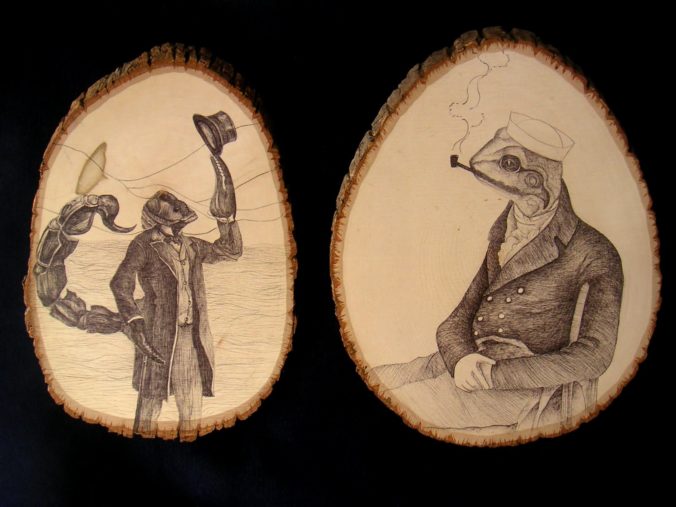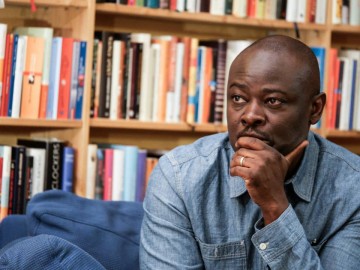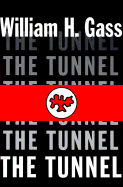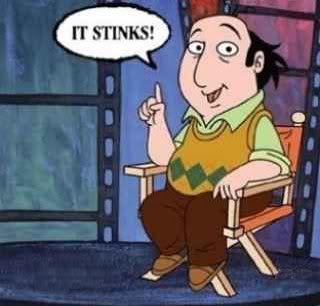The title phrase comes from Jeffrey Eugenides’ new book The Marriage Plot. I probably won’t read it. I read a bit of The Virign Suicides and didn’t care for it. My interest in Eugenides now is because this phrase is a perfect example of a style of “literary” writing that holds a lot of sway in contemporary fiction.
The TLS reviewer Edmund Gordon singled it out for praise:
Eugenides tells this story in a voice of careful anonymity and untroubled omniscience, moving between the perspectives of several of his characters and sometimes getting away from all of them together. The opening paragraph takes the form of an impersonal inventory of Madeleine’s bookshelves; later, we are told (though he himself is apparently unaware of the fact) that Mitchell’s letters to his parents are “documents of utter strangeness”, and (while Madeleine is lying hungover in bed one morning “with a pillow over her head”) that the sun is “shining on every brass doorknob, insect wing, and blade of grass” outside. For a work that employs such a majestic narrative standpoint, though, the touch is light, the tone unusually sweet. Here, for example, is Mitchell, remembering the occasion – as they were taking refuge from a toga party in the laundry room of her dorm – on which he caught a lucky, life-haunting glimpse of Madeleine’s half-exposed nipple:
It was amazing how an image like that – of nothing, really, just a few inches of epidermis – could persist in the mind with undiminished clarity. The moment had lasted no more than three seconds. Mitchell hadn’t been entirely sober at the time. And yet now, almost four years later, he could return to the moment at will (and it was surprising how often he wanted to do this), summoning all of its sensory details, the rumbling of the dryers, the pounding music next door, the linty smell of the dank basement laundry room. He remembered exactly where he’d been standing and how Madeleine had stooped forward, tucking a strand of hair behind her ear, as the sheet slipped and, for a few exhilarating moments, her pale, quiet, Episcopalian breast exposed itself to his sight.
She quickly covered herself, glancing up and smiling, possibly with embarrassment.
The prose here is relaxed – almost indecently so in comparison to Eugenides’s first two books, and sometimes by any standards to the point of laziness (“the rumbling of the dryers, the pounding music”) – but fuelled by just enough hard-working detail to keep it buoyant; take the brilliance of that “pale, quiet, Episcopalian breast”, the last two adjectives of which are so unexpected, yet which fit so intimately to religious, callow Mitchell’s perspective.
The trivial objection would be to say that a breast is almost always quiet and almost never Episcopalian, but I have no problem with synecdoche. And in fact “quiet” is not particularly problematic: it may be superfluous or slightly trite (it doesn’t seem so unexpected), but it does not seem to be a distinctive artistic move.
“Episcopalian” is another matter. Superficially, it makes sense in the context of the scene, as Mitchell is apparently interested in theology and comes from a Greek Orthodox background. Yet what work is “Episcopalian” being asked to do? Here are some of the attributions that we could make from that adjective, in rough order from most plausible to least plausible in the context of the scene:
- Merely a reminder Madeleine’s religion, a salient characteristic to Mitchell
- Foreign, alien, not of Mitchell’s religion
- Religious, theistic
- Forbidden, taboo
- Sacred, pure
- Anglo-American, non-Greek, comfortably at home
- Uptight or upright, proper stiff
- Parochial, lacking central authority
These are not all entirely compatible, and some are downright unlikely in context. The word “Episcopalalian” could be taken to mean some of these, but not all of them simultaneously. The word is too overloaded. Now, as William Empson tells us, ambiguity can be a passport to richness, but not at the expense of precision. Which attributions did Edmund Gordon make that caused him to praise the choice of adjective?
(I note that “Episcopalian” is not used anywhere else in the novel. “Anglican” is used twice, but both times literally.)
I have read the surrounding text and know what sort of character Madeleine is, and that knowledge does not resolve the matter. If “Episcopalian” is merely meant to show that Madeleine is Episcopalian in Mitchell’s eyes at that moment, then the synecdoche falls apart, because there is no greater whole for which the naked breast can stand: there is no evident reason why Madeleine’s naked body should be more Episcopal than her clothed body. But if the word is meant to suggest any of the other associations, then the matter is terminally ambiguous. Why use such a word then?
“It sounded good,” may be the most obvious answer, and perhaps it is sufficient. But the use of such a word also poses a challenge to readers, forcing them to stop and assess the significance of the word, then derive the intended meaning of it. Normally, the implied meaning is fairly obvious, but Eugenides picked a word that relied on specific cultural knowledge while also being detached from any particular adjectives he might have been intending to imply, making it paradoxically more parochial and more unclear. Yet the reviewer gives praise to the use of the term, taking it as a given that even out of context, the brilliance of the term’s use shines through.
What I want to suggest is that it is exactly this additional indirection, the use of concepts once-removed from the concrete adjectival properties, is taken to be good writing. I am not sure that it is. The ambiguity we should be seeking in writing is that which opens up fissures in the relations of the characters and the progressions of their thoughts. This, however, opens up a fissure between what the writer is trying to say (whatever that may be) and what is actually being communicated.
A challenge is given to a reader by using a word like “Episcopalian,” but the solution is purely formal: figure out what more direct, concrete adjective the word could be substituting for. There is the satisfaction of having done work in reading and trying to understand the sentence, but nothing is learned. Rather, something is taken away; a word was invoked with only part of its meaning having any significance to the matter at hand. Most likely, the superficial sense is all that was intended.
Such an approach to language robs words of their power by invoking them with only a partial, vague sense of their full significance. The result is a narrowing of meaning and a celebration of cleverness over insight. Yet the additional work required may make the work seem more “literary,” all the more so if no definite answer is forthcoming.
It is not a matter of style per se. Both ornamented and unornamented prose can be free of such hollow prestidigitation. Craig Raine highlighted this passage from Adam Mars-Jones’ Cedilla that does not lose clarity in its baroque language:
A Mars bar does indeed have veins, chocolate tubes breaking the surface of the bar, as if caramel was circulating through them, supplying the nougat core with vital nutrients and access to unthinkable sensations. The whole ridiculously penile confection was alive. It was a soft hard-on. It was Cadbury’s Flake that had the fast reputation, and its adverts always portrayed Flake-eaters as oral nymphomaniacs, but the Mars bar was every bit as concupiscent.
On the other hand, the sparse, precise prose of Agnes Owens does not lose evocative power by being direct, as with this bit from Like Birds in the Wilderness:
She said that she was cold and wanted to get home because she didn’t feel well. We walked back through the park in silence. When we reached the gate where she caught the bus I asked her if she would see me the next afternoon at the same place. She sighed and said all right in a sullen manner. She allowed me to kiss her, but her lips were cold.
Both of them are writers who learned through the experience of their imagination, and not, as Robert Musil says, “with the aid of borrowed terms.”



